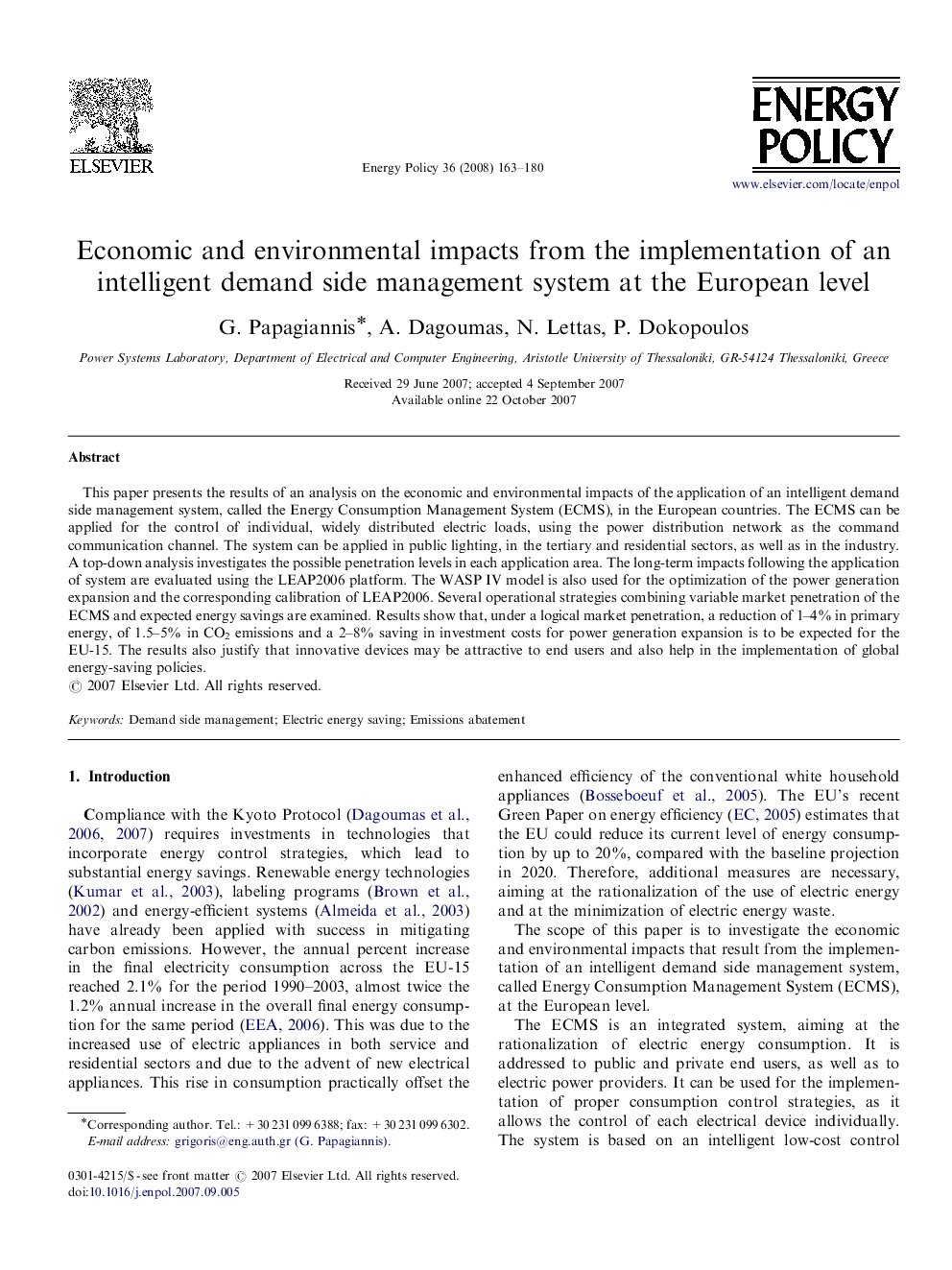| Article ID | Journal | Published Year | Pages | File Type |
|---|---|---|---|---|
| 996478 | Energy Policy | 2008 | 18 Pages |
This paper presents the results of an analysis on the economic and environmental impacts of the application of an intelligent demand side management system, called the Energy Consumption Management System (ECMS), in the European countries. The ECMS can be applied for the control of individual, widely distributed electric loads, using the power distribution network as the command communication channel. The system can be applied in public lighting, in the tertiary and residential sectors, as well as in the industry. A top-down analysis investigates the possible penetration levels in each application area. The long-term impacts following the application of system are evaluated using the LEAP2006 platform. The WASP IV model is also used for the optimization of the power generation expansion and the corresponding calibration of LEAP2006. Several operational strategies combining variable market penetration of the ECMS and expected energy savings are examined. Results show that, under a logical market penetration, a reduction of 1–4% in primary energy, of 1.5–5% in CO2 emissions and a 2–8% saving in investment costs for power generation expansion is to be expected for the EU-15. The results also justify that innovative devices may be attractive to end users and also help in the implementation of global energy-saving policies.
